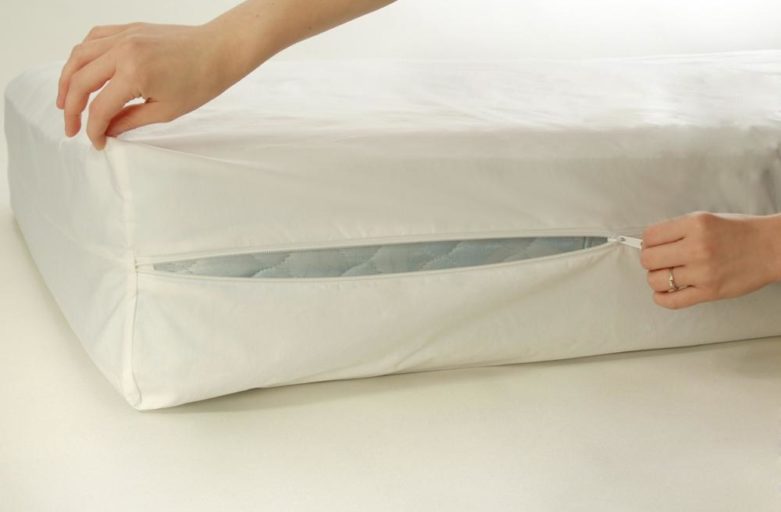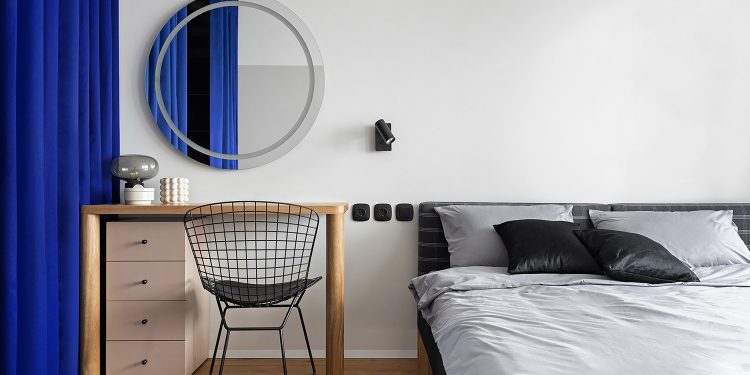Do you really need a mattress protector? Most able-bodied adults might say no, especially if they associate mattress protectors with childhood bedwetting. But mattress protectors aren’t just for kids.
No matter your age, a mattress protector can shield your mattress from spills, bodily fluids, and dead skin flakes and slough off during the night. They can go a long way towards preventing dust mites and bacteria from taking up residence in your bed — and passing their little corner of your home down to their exceedingly numerous great-great-great grandchildren. You don’t need bacteria, mold, and dust mites colonizing your family’s mattresses. Protect your household with mattress protectors. You’ll all enjoy better health, and get more use out of your mattresses besides.
Keep Your Mattresses Clean
In the bad old days, mattress protectors were thick, plastic contraptions that made crinkly noises every time you shifted position in bed. But these days, better materials are available, and mattress protectors are typically thin, soft, silent, and comfortable, while still being water-resistant or waterproof.
A mattress protector is perfect for protecting a mattress from spills, sweat and other bodily fluids, dead skin flakes, and other debris. Even if no one in your household currently wets the bed, a mattress protector is still an important tool for keeping a mattress clean. Kids and adults alike may spill beverages or food in the bed, and almost everyone sweats or drools in their sleep — a mattress protector stops these fluids from soaking into the mattress and saves you the trouble of trying to spot-clean a mattress, knowing that you’re never going to be able to get all of the liquid from the inner fibers. Consider some of the other bodily fluids that might occasionally find their way onto your sheets — do you want to sleep with them for the rest of your mattress’s lifespan? Once something soaks into your mattress, it’s always going to be in your mattress. Get a mattress protector instead.
Discourage Dust Mites, Bacteria, and Mold
Everyone also sheds dead skin cells in their sleep, and many people go to bed wearing makeup, hair products, skin creams, and other stuff that can slough off into the bed as dust and debris. Young children who aren’t yet bathing every day may go to bed dirty from their daily play and activities.
Dead skin cells, dirt, and debris can build up between the sheets and the mattress and be ground into the mattress itself as you sleep. Dead skin cells, in particular, attract dust mites, which love to feed on them — and a warm, slightly damp, dark bed is a paradise for dust mites. Bacteria and mold can also start to proliferate in a bed that’s allowed to collect dead skin cells, dust, debris, and moisture. These creatures leave secretions of their own inside the bed, including fecal matter and other waste by-products. When they perish, they leave behind their own remains inside your bed, which can further nourish even more unwelcome, microscopic bedmates.
If the thought of years’ worth of dead skin cells, dirt, dust mites, bacteria, and even mold building up in your mattresses doesn’t bother you, it should. Dust mites in particular are a common trigger for allergies, and the dust, bacteria, mold, and dirt that accumulates in unprotected mattresses over time can also trigger skin problems and respiratory issues. Dust mite feces has been found to contain human allergies Der P 1 and Der P 5, which can cause sinus problems, asthma-like respiratory symptoms, and even skin complaints like eczema. When you use mattress protectors, you can keep those allergens from accumulating inside your family’s mattresses, so you’ll know that your beds aren’t making you sick. For families with allergies and asthma issues, organic mattress protectors and mattresses are the best option, because they’re made with sustainable materials, and don’t contain the synthetic materials that can lead to off-gassing of volatile organic compounds (VOCs) at night.
Get More Life Out of Your Mattress

New mattresses are pricey, but a mattress protector could help you put off ordering a new one. Since the mattress protector will keep the mattress clean, your mattress may last longer than the standard eight to 10 years. You won’t have to worry about replacing your mattress purely for sanitary reasons. You can keep using it until it’s no longer functional, and that can mean getting an extra five to 10 years out of it.
Is your family using mattress protectors? If not, your beds could be full of dirt, dead skin, dust mites, bacteria, and their byproducts. Put mattress protectors on every bed, to keep them clean and your family healthy.





